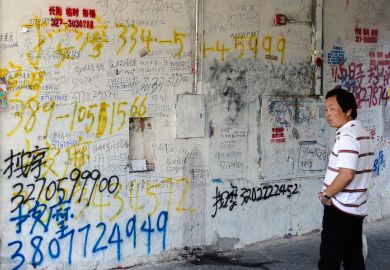In 2017, Simon Rosenbaum faced the uncertain future of many early career academics. Three years out from his PhD, he had achieved lecturer’s rank at UNSW Sydney, where he was a clinical supervisor. A postdoctoral fellowship had lasted a year. Stints as an exercise physiologist, guest lecturer and chief investigator had helped pay the bills.
Seven years on, Dr Rosenbaum has delivered workshops in 25 countries, focusing on the mental health benefits of physical activity for impoverished people and trauma survivors. He has been named a highly cited researcher by Clarivate for five years running, amassing about 350 publications and 15,000 citations. He has worked as a United Nations psychosocial support officer in Rohingya refugee camps; held visiting academic appointments in Bangladesh, Colombia and Italy; co-chaired a thinktank on sport and humanitarian settings; founded a trauma-informed exercise facility for marginalised Sydneysiders; headed the Australasian Society for Traumatic Stress Studies. And he is on the verge of a full professorship at just 37.
Dr Rosenbaum said he would probably no longer be in academia if he had not won a place on UNSW’s Scientia Programme, which arms young-gun researchers with continuing or convertible tenure track positions, reduced teaching responsibilities and roughly A$30,000-A$50,000 (£15,000-£26,000) to spend each year on research, conferences, collaborations and professional development.
“There’s certainly no way I’d have the career I have now, with the colleagues I have around the world, without that support,” he said. “How many academics get invited somewhere by people who don’t have the resources to pay for your ticket? With Scientia, those invitations happen and you can go.
“You have a cohort of colleagues you can turn to, because they’re at all levels. Any problem you’re experiencing, someone’s been through it or something similar. I can’t stress enough the opportunities it’s provided, the support, the colleagues, the camaraderie. Academia can be quite a lonely process and Scientia has done a lot to take that away.”
Perhaps most satisfying has been the opportunity to help fund “amazing” academics in countries riven by conflict or scarcity. “Through the Scientia Programme we’ve been able to think about leveraging and sharing our resources.”
Dane McCamey, UNSW’s pro vice-chancellor for research, said Scientia participants had brought in “substantial” grant money and published “an awful lot of really good papers”. They tend to interact outside their faculties, he added. “We see a lot of really great interdisciplinary work emerging from the cohort.”
Retention has been another benefit. Of some 165 current and former participants, almost all remain at UNSW. Professor McCamey said that while staff flow helped universities avoid becoming “stagnant”, keeping top talent was desirable. “Having a core of…high-quality people who are committed to the place and have the right ethos is really important,” he said.
“We’ve invested a lot of resources [in] these people. We’ve built labs and programmes. It can be expensive…to go out and hire a new person [and incur] startup costs. It’s cheaper to support people through their career than to go off and buy superstars.”
Professor McCamey hoped UNSW would be able to maintain its investment in the scheme, which had so far absorbed over A$100 million, despite a funding crunch from the federal government’s international education crackdown. “I think it’s a model that a lot of universities could get behind,” he said.
But it requires “internal collaboration” and a willingness from faculties “to cede some control” over their appointments. UNSW has achieved this by splitting funding responsibility for Scientia between central administration and researchers’ home faculties. “It means that we both have real buy-in.”
The single most important ingredient has been “pastoral care” in the “lonely place” of early career academia. “It’s not that we give people 50,000 bucks a year and say, ‘Off you go.’ We also give them people…to connect with in a really personal way. Not just with their research and their metrics, but with their lives.”
Plenty of universities have vice-chancellors’ postdoctoral fellowships or “some strategic hiring scheme”, he said. “What’s really unique about what we’ve done is…all of those bits that go around the support to the person, rather than the person’s outputs. Part of what makes it unique is Evelyn.”
Evelyn Mike has managed the scheme since its inception. She claimed the people’s choice prize, determined through an all-staff vote, at UNSW’s most recent vice-chancellor’s awards.
Ms Mike’s connection to the participants is almost maternal. “Many of them call themselves part of the Scientia family. I feel that my role is supporting these 160-odd people who are changing our world,” she said.
Register to continue
Why register?
- Registration is free and only takes a moment
- Once registered, you can read 3 articles a month
- Sign up for our newsletter
Subscribe
Or subscribe for unlimited access to:
- Unlimited access to news, views, insights & reviews
- Digital editions
- Digital access to THE’s university and college rankings analysis
Already registered or a current subscriber?










